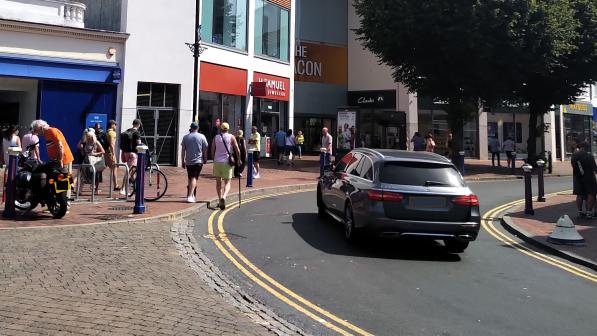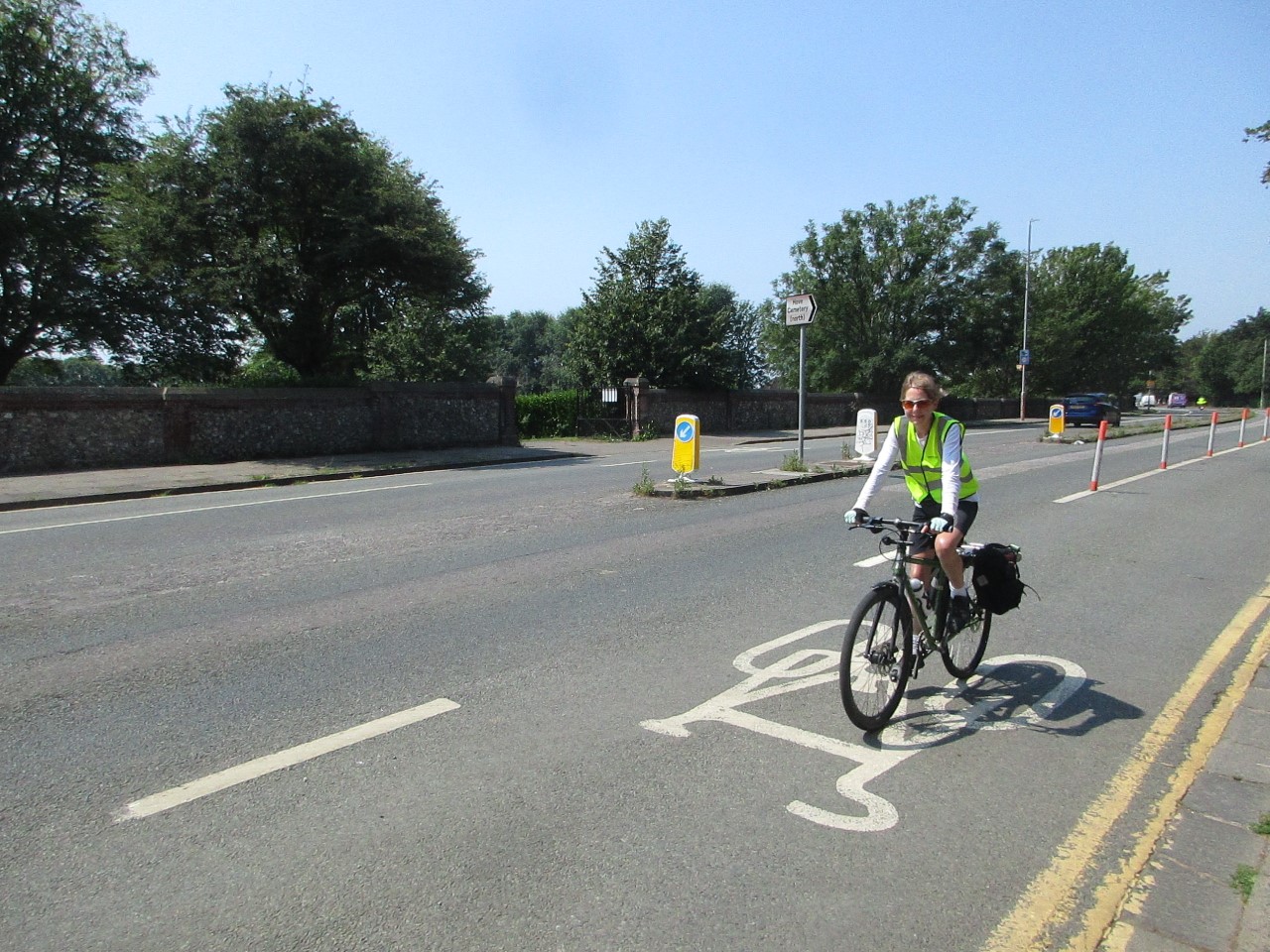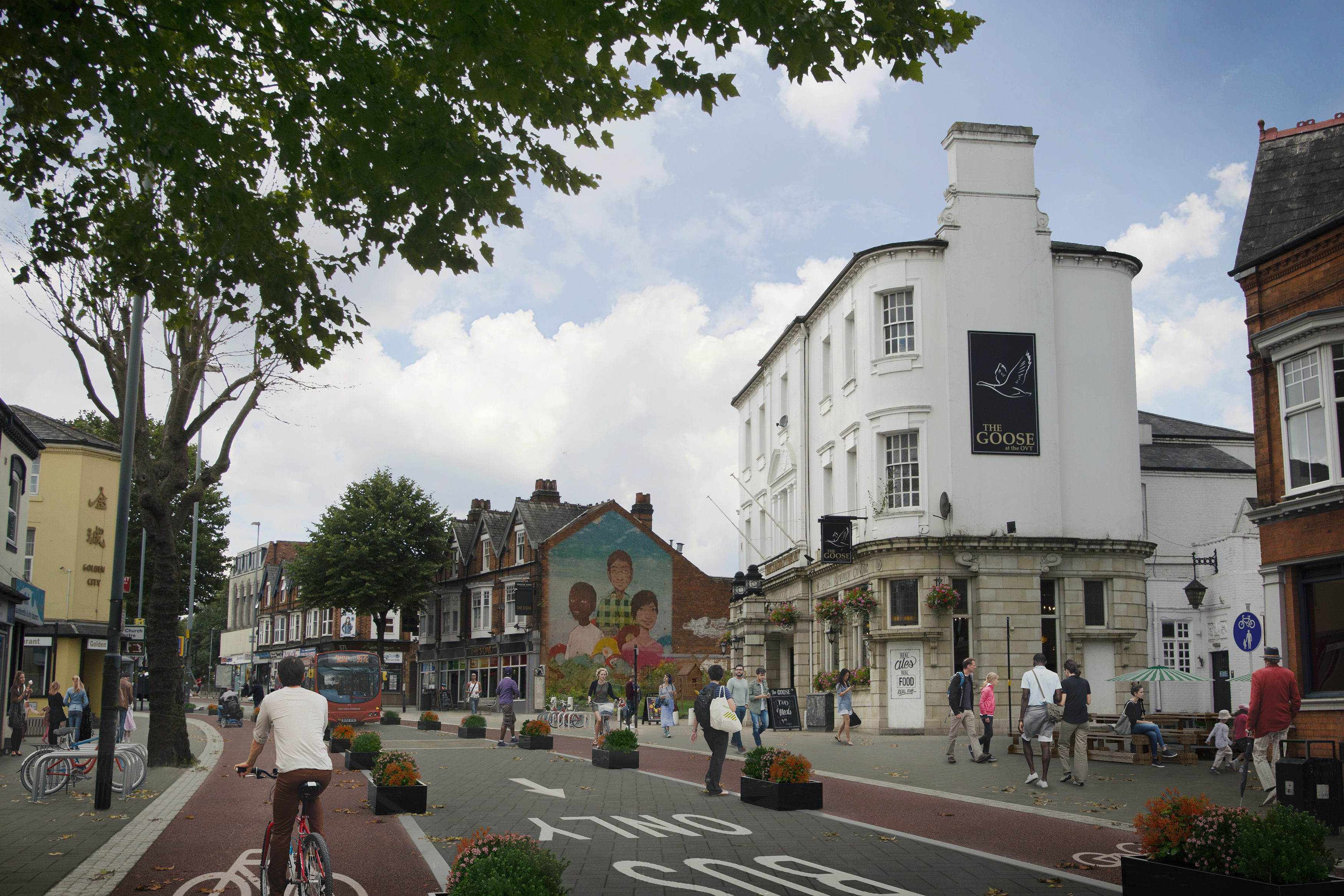Cycling UK objects to Eastbourne’s proposals to ban cycling from town centre street

East Sussex County Council (ESCC) is consulting on a traffic regulation order (TRO) that, if made, would ban not only motor traffic but also cycling from a section of Terminus Road as part of a ‘Town Centre improvement scheme’.
At the time of writing, there is still time for the public to object by the deadline, 29 July 2022.
Currently, the stretch of Terminus Road in question is relatively safe and low speed. Once motor traffic is excluded, it would make an ideal two-way cycling route and ESCC could easily trial this idea before making it permanent.
But instead the council is looking to ban cycling altogether from the start. This will force people to dismount or face riding along indirect and busy roads, such as the A259.
In contrast, the TRO will improve access for people in private motor vehicles by enabling two-way traffic on a couple of adjacent roads.
The local campaign group Bespoke fears these moves will discourage people from cycling across the town and undermine everyday, healthy, active travel. They also point out that a shared pedestrian and cycle zone just further up the street has always worked well.
In its formal, detailed objection (attached below), Cycling UK explains how and why ESCC’s proposals contravene or misunderstand a wide array of advice that the Government expects all highway authorities in England to follow. This includes guidance on their network management duty, best practice in cycle infrastructure design and the need to reallocate road space to both walking and cycling.
In addition, Cycling UK refers ESCC to national policies that the council should not be ignoring, namely the Government’s Transport Decarbonisation Plan, Net Zero Strategy and England’s ambitious targets to increase the percentage of short journeys in towns and cities that are walked or cycled to 46% by 2025, and 50% by 2030.
When national and local policy all point towards taking steps to enable more people to cycle, East Sussex County Council is moving in the other direction.
Duncan Dollimore, Cycling UK's head of campaigns
Objectors, including Cycling UK, also highlight the scheme’s failure even to apply local policy, with Eastbourne’s Core Strategy Plan Policy D8 (Sustainable Travel) stating: “The development of a network of safe walking and cycling routes will be promoted”; that transport measures should seek to reduce “reliance on the private car”; and “offer potential for modal shift”.
Cycling UK is urging everyone who wants councils to improve, not undermine, cycling provision to support campaigners in Eastbourne by heading to their template text for objecting to TRO 456, and respond to the consultation by the deadline, Friday 29 July.
Professor Scarlett McNally of Eastbourne cycle group Bespoke and lead author for 'Exercise the miracle cure' by the Academy of Medical Royal Colleges, says:
“Eastbourne is only four miles across - it should be great for cycling. We need good routes for ordinary journeys, and we need routes that feel safe. Most people do not do enough exercise, but it is hard to get started, so the best way is to fit it into a habit, like cycling to work, school or to the shops.”
Duncan Dollimore, head of campaigns at Cycling UK says:
“When the Network Management Duty guidance stresses the importance of reallocating road space to people cycling, ESCC is proposing to remove road space for cycling.
“When the cycling design guidance makes it clear that in vehicle restricted areas (VRAs) the preference should be to allow access to cyclists, ESCC is assuming this will cause problems although there is no evidence to support that assumption.
“When national and local policy all point towards taking steps to enable more people to cycle, ESCC is moving in the other direction.”






